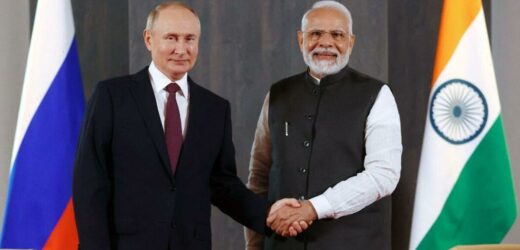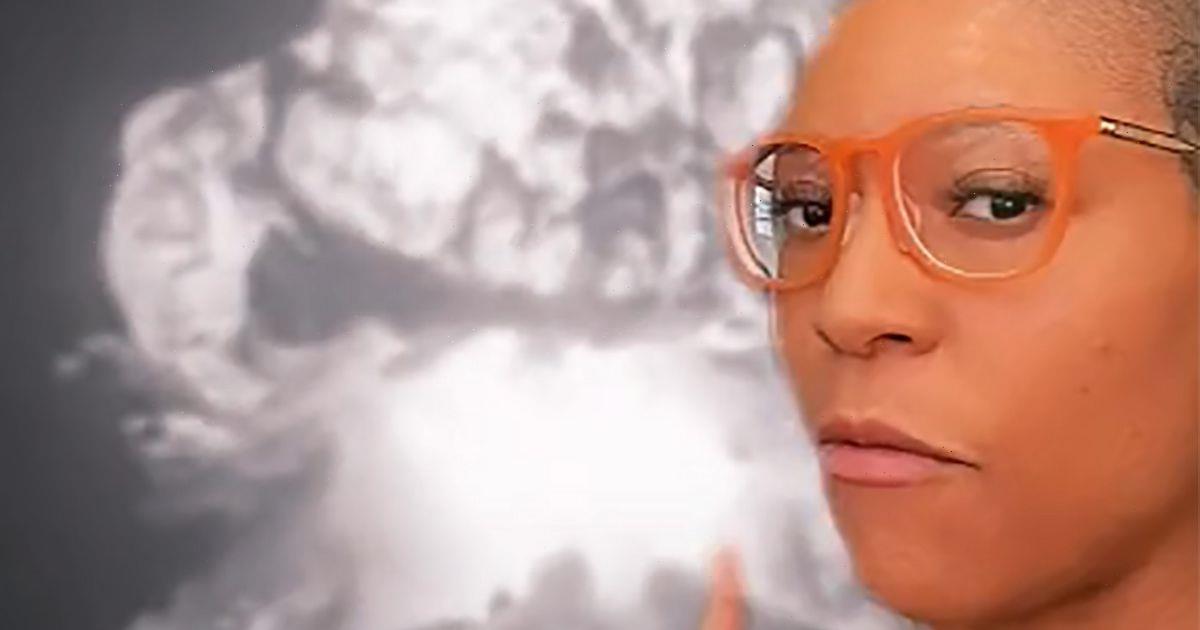India's Petroleum Minister discusses buying Russian oil and gas
We use your sign-up to provide content in ways you’ve consented to and to improve our understanding of you. This may include adverts from us and 3rd parties based on our understanding. You can unsubscribe at any time. More info
India has announced that it is considering plans to invest in Russia’s Sakhalin-1 oil and gas project in the country’s far east, potentially replacing a major US-owned stake. Last week, Russian President Vladimir Putin signed a decree, seizing the project that was previously led by the Exxon Mobil Corp. This decree hands the Kremlin authority to decide whether foreign shareholders can retain stakes in the project. The decree also gave Rosneft, a Russian state-run company, the authority to decide whether foreign shareholders including India’s ONGC Videsh can retain their participation in the project. Experts have previously predicted that as relationships sour between Russia and the West, India may step in and purchase Exxon-Mobil’s stake in Sakhalin- 1.
India’s Petroleum minister Hardeep Singh said that New Delhi would look into what Russia had to offer following the ownership revamp, adding that the two countries had “healthy dialogue”.
In an interview on Monday following meetings with US oil executives in Houston, he said: “We’ll look at what is the state of play and what’s on offer.”
Since Russia’s invasion of Ukraine, Western countries and companies have left Moscow, either to distance themselves from the war to evade sanctions, or were forced out by Russia in retaliation to the sanctions.
Since then, experts have suggested that this vacuum left by the could be filled by countries in Asia, primarily China and India, both emerging countries with a large, and rapidly growing demand for supplies like energy.


Danil Bochkov, a Russia-China-Europe expert tweeted in April: “China plans to substitute Shell in Sakhalin-2 project of Gazprom. India can buy ExxonMobil shares in Sakhalin-1 project and BP shares of Rosneft.
“Asian companies are slowly replacing the Western energy giants which joined the sanctions. And this trend will become stronger.”
Chinese energy companies are reportedly in talks with British energy behemoth Shell to sell its stake in the upcoming Sakhalin-2 liquefied natural gas venture.
Sakhalin-2 was touted to be one of the world’s largest oil and gas projects, along with being Russia’s first offshore gas project.

According to Shell’s website in April: “Sakhalin-2 lays the foundation for Russia to become a leading energy exporter to the highly competitive energy markets of the Asia-Pacific region.”
Nearly all the gas extracted from this oilfield is sold under long-term contracts to customers in the Asia-Pacific region and North America.
The London based company, which owns a 27.5 percent holding in the venture, is in negotiations with Chinese state-run oil companies CNOOC, CNPC and Sinopec.
Meanwhile India, the world’s third-largest importer of oil, and has been stepping up its purchase of Russia’s crude oil supply in recent months.
DON’T MISS:
Downing Street accused of indifference’ about vaccines [REPORT]
Europe at risk of being cut off from rest of world by Putin [INSIGHT]
Energy outage as undersea cables near Nord Stream pipeline cut [REVEAL]


Since Russia’s invasion of Ukraine, India has purchased more crude oil from Russia in the past two months than it did in all of 2021.
However, experts warned that Russia’s actions in Ukraine, and its threat to cut off gas to the West, have left Putin with very few countries as potential buyers, thus reducing its leverage when negotiating contracts.
Speaking to Express.co.uk, John Baldwin, the managing director of CNG Services said: “If Putin is sending his gas east, he’s only really sending it to China, and he won’t be in a good negotiating position.
“He can’t send it West because he’s fallen out with the EU and the UK, he can only send it east and so he’ll get a very poor price. China will pay only the absolute minimum, and they might end up owning all the gas fields, owning all the pipelines.
“Putin might finish up not making any money at all from selling his gas to China because China will be in control of the negotiation and he won’t have an alternative.
Source: Read Full Article


